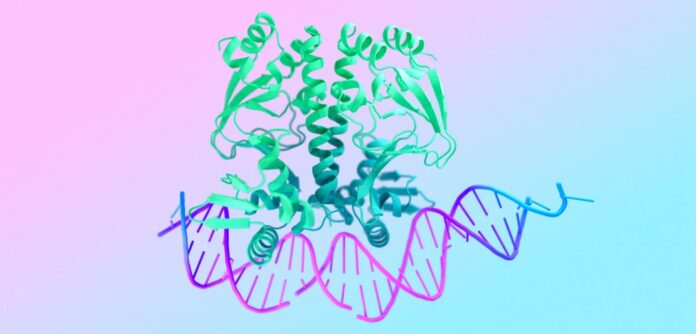Google DeepMind has launched AlphaFold 3, the latest iteration of its artificial intelligence model aimed at unraveling the complexities of living cells.
With a focus on predicting the structure and interactions of biological molecules, AlphaFold 3 promises to accelerate efforts to understand diseases like cancer and expedite the search for effective treatments.
AlphaFold 3 represents a significant leap forward in the application of AI to biology.
Building on advancements made since its inception in 2018, this new iteration offers unparalleled accuracy in forecasting the intricate shapes and behaviors of biological components within cells.
Published in Nature, the paper detailing AlphaFold 3’s capabilities underscores its ability to provide a comprehensive view of biochemical networks, encompassing not only proteins but also DNA, RNA, and ligands – molecules crucial for disease detection and treatment.
Sir Demis Hassabis, DeepMind’s CEO and co-founder, describes AlphaFold 3 as a pivotal advancement towards understanding the emergent properties of biological systems.
By elucidating the interactions between molecules within cells, this technology heralds a transformative shift in our comprehension of life’s fundamental processes.
The implications of AlphaFold 3 extend far beyond theoretical understanding. With its enhanced predictive capabilities, researchers can now expedite the identification of potential drug molecules, significantly reducing the time and resources traditionally required for such endeavors.
Max Jaderberg, Chief AI Officer of Isomorphic Labs, highlights the potential for AlphaFold 3 to revolutionize drug discovery, enabling scientists to generate and test hypotheses at the atomic level within seconds, a task that previously took months or years.
Moreover, AlphaFold 3’s predictive accuracy surpasses existing specialized tools, paving the way for more efficient and reliable drug development processes. By leveraging AI deep learning frameworks, researchers can achieve biologically relevant performance with minimal data, a feat previously thought unattainable.
John Jumper, leader of DeepMind’s AlphaFold team, underscores the transformative impact of this technology on scientific research. With applications ranging from understanding plant biology to elucidating disease mechanisms, AlphaFold 3 is poised to unlock a wealth of new insights that could revolutionize healthcare and beyond.
However, AlphaFold 3 is not without its limitations. Challenges persist in accurately modeling chiral molecules and distinguishing between structured and disordered regions within proteins. To address these concerns, the model incorporates confidence measures to indicate the reliability of its predictions, mitigating the risk of erroneous conclusions.
Despite these challenges, the potential of AlphaFold 3 to reshape the landscape of biological research is undeniable. As Julien Bergeron, a structural biologist at King’s College London, notes, the ability to test hypotheses virtually before conducting experiments in the lab represents a paradigm shift in scientific inquiry. This democratization of experimentation promises to accelerate the pace of discovery and usher in a new era of scientific innovation.
The implications of AlphaFold 3 extend beyond the realm of academia to the pharmaceutical industry. A study by the Boston Consulting Group suggests that AI-driven drug discovery has a higher success rate in early-stage trials compared to traditional methods, offering hope for more effective and efficient drug development processes.
AlphaFold 3 represents a monumental advancement in our quest to unlock the mysteries of biology and improve human health. With its unparalleled predictive capabilities and potential to revolutionize drug discovery, this technology heralds a new era of scientific inquiry and innovation.

